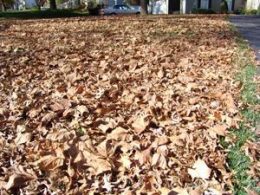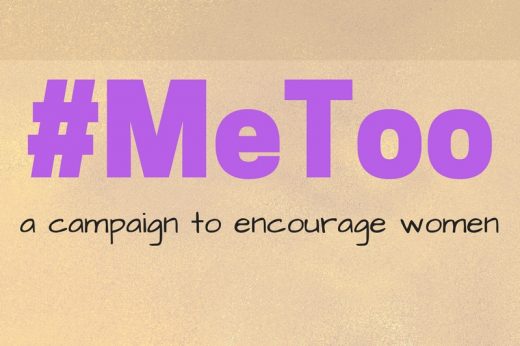#MeToo has been all over social media lately. It started from the Harvey Weinstein case. The campaign is about women using the hashtag along with Me Too to tell about their stories of domestic violence. Some of the stories I have read range all over the place. There are about abusive relationships, rape, crazy nights they cannot remember due to a drug slipped into their drink and just plan rude comments that women sometimes experience growing up.
Fall Volunteer Wheat
In Harvey County, recent rains have stimulated yet another flush of volunteer wheat. Volunteer wheat is known to be an important reservoir for wheat streak mosaic and wheat curl mites that spread this disease. Many growers are asking if this newly emerged volunteer elevates the risk for problems with wheat streak mosaic becoming established this fall.
 While volunteer wheat is known to be an important reservoir for wheat streak mosaic, all volunteer wheat is not equal in its contribution to disease outbreaks. The greatest risk comes from volunteer wheat that emerged shortly after harvest and was left all summer long. This volunteer wheat is rapidly colonized by the curl mites and infected with viral diseases. When this volunteer wheat is removed, the risk is reduced because the virus and curl mites do not survive more than a few hours without a living host. If new volunteer wheat emerges during the summer or fall, the risk of disease returns but not to the same degree. The risk is lower relative to the initial flush because there is less time for it to be colonized by curl mites and infected with virus prior to wheat planting. Volunteer wheat that emerges at planting, or just as the new wheat crop is emerging, is less likely to become a reservoir for disease than volunteer that has been present all summer. If fact, the late emerging volunteer wheat may pose no more risk than early planted wheat fields.
While volunteer wheat is known to be an important reservoir for wheat streak mosaic, all volunteer wheat is not equal in its contribution to disease outbreaks. The greatest risk comes from volunteer wheat that emerged shortly after harvest and was left all summer long. This volunteer wheat is rapidly colonized by the curl mites and infected with viral diseases. When this volunteer wheat is removed, the risk is reduced because the virus and curl mites do not survive more than a few hours without a living host. If new volunteer wheat emerges during the summer or fall, the risk of disease returns but not to the same degree. The risk is lower relative to the initial flush because there is less time for it to be colonized by curl mites and infected with virus prior to wheat planting. Volunteer wheat that emerges at planting, or just as the new wheat crop is emerging, is less likely to become a reservoir for disease than volunteer that has been present all summer. If fact, the late emerging volunteer wheat may pose no more risk than early planted wheat fields.
The need to control this volunteer wheat depends on the density of the stand and rotational plans for individual fields. A thin stand of sparse volunteer wheat may be able to wait until other planned herbicide applications are made in the spring. In contrast, a heavy or thick stand of volunteer wheat or other winter annual grasses like jointed goat grass, downy brome, or other brome species may necessitate some action this fall. Glyphosate is our best herbicide for controlling these winter annual grasses. Glyphosate can be tank-mixed with other residual herbicide programs that often are used to manage winter annual broadleaf weeds such as mustards, henbit, or mares tail.
Cool Season Lawn Nitrogen
October is flying by! Leaves are beginning to fall and it is just about time to give our cool season lawns some nitrogen. November is the time to give cool-season lawns the last nitrogen application of the season. Why November? Because while top growth slows in response to cool temperatures, grass plants are still making food (carbohydrates) by photosynthesis. A November nitrogen application helps boost the photosynthesis rate. Carbohydrates that are not used in growth are stored in the crown and other storage tissues in the plant. These carbohydrate reserves help the turf grass green up earlier in the spring and sustain growth into May without the need for early-spring (March or April) nitrogen. Those early-spring nitrogen applications are less desirable because they can lead to excessive shoot growth and reduced root growth.
Other benefits of November-applied nitrogen for cool-season grasses include improved winter hardiness, root growth and shoot density. How much should you apply? One to 1 to 1 ½ pounds actual nitrogen per 1,000 sq. ft. of lawn area is sufficient. Following the recommended spreader setting on the fertilizer bag should apply the correct amount of fertilizer. In order for this application to be effective, the nitrogen must be readily available to the plant, because the growing season is nearly over. Therefore, for a November application, use a soluble (quickly-available) nitrogen carrier such as urea or ammonium sulfate. Many turf grass fertilizers sold in garden centers and other retail outlets also contain soluble nitrogen. Avoid products that contain water-insoluble nitrogen (slow-release) for this application. As always, sweep up any fertilizer that gets on driveways, sidewalks, or streets and reapply it to the lawn.
Teens and Domestic Violence
Did you know violent behavior usually starts between the ages of 12 and 18? That means more and more teens are experiencing dating violence from their partner. This is not a good thing because it affects teens greatly; not just short-term but also long-term.
Between the ages of 12 and 18 teens are going through body changes while maturing, dealing with mood swings, social issues, school, their family, learning who they are as a person, and much more. These are all important parts of growing up and when a teen is traumatized their development is affected greatly.
For example if a teen is abused by their partner they can start to participate in risky behaviors. Risky behaviors could include but are not limited to drugs, tobacco use, alcohol, sex, and skipping school. Along with these risky behaviors teens can develop symptoms of depression and anxiety, become antisocial and stay home where they feel safe. Lastly they can have suicidal thoughts.
Can you imagine having to worry about school, friends, body changes and then add on having social anxiety and suicidal thoughts; while being a teenager? That is why it is very traumatizing and tough on teens when they are victims of dating violence.
How do we prevent our teens from this? Well, we talk about it with teens; talk about it in general. Domestic violence is still a taboo topic in today’s society, but if we step out of our comfort zones and talk about it, we can help prevent our teens from being in a situation that involves dating violence and prevent future abusers from abusing their partners.
Places in Harvey County that will help you:
HVCO Domestic Violence and Sexual Assault Taskforce: 1-800-487-0510
Safe Hope Domestic Violence and Sexual Assault: 316-283-0350
Agape Resource Center (food pantry & clothing closet): 316-283-1600
Salvation Army: 316-283-3190
New Jerusalem Missions: 316-282-2101
Harvey County Homeless Shelter: 316-283-7711
Health Ministries Clinic: 316-283-6103
Offender Victim Ministries: 316-283-2038
Harvey County Health Department: 316-283-1937
4-H Enrollment Day
 Next Saturday, October 28th, the Harvey County 4-H program will host the 4-H Enrollment Day event from 9 AM to Noon at the Newton Rec Center located at 415 N Poplar in Newton. The 4-H Enrollment Day is your one-stop-shop for meeting 4-H volunteers, learning about what 4-H has to offer and enrolling in the program. 4-H is a community of young people, ages 5-18, across America who are learning leadership, citizenship and life skills. 4-H empowers youth to reach their full potential working and learning in partnership with caring adults. Continue reading “4-H Enrollment Day”
Next Saturday, October 28th, the Harvey County 4-H program will host the 4-H Enrollment Day event from 9 AM to Noon at the Newton Rec Center located at 415 N Poplar in Newton. The 4-H Enrollment Day is your one-stop-shop for meeting 4-H volunteers, learning about what 4-H has to offer and enrolling in the program. 4-H is a community of young people, ages 5-18, across America who are learning leadership, citizenship and life skills. 4-H empowers youth to reach their full potential working and learning in partnership with caring adults. Continue reading “4-H Enrollment Day”
Leaves on Your Lawn
The best thing about Fall is the nice cool temperatures!
The second best thing is leaf color changes to reds, oranges, purples and yellows. Then soon leaves begin to fall. When they start falling from deciduous trees so it’s a good time to stop and think about options for handling the litter.
Although a scattering of leaves won’t harm the lawn, excessive cover prevents sunlight from reaching turfgrass plants. Turf left in this state for an extended period will be unable to make the carbohydrates needed to carry it through the winter. There are options for dealing with the fallen leaves other than bagging them up and putting them out for the trash collector.
Communication is Key for Good Landowner-Tenant Relationships
Good tenant-landowner relationships are always based on good communication just like every good relationship. Often when a land owner requests terminating a lease, he says poor communication is the leading factor. Here are some examples of a few questions that might be a sign there is poor communication the tenant and landlord.
- Why are my yields less this year?
- Why are you going to plant that?
- Where is my share of the grain being stored this year?
- When is harvest going to start?
- Why are there cows in my field? How long will they stay?
- Why isn’t there a crop growing in the field right now?
- When am I getting paid?
- Why are my yields less this year?
As a tenant it is critical to be able to rent and to hold on to the land you are farming in order to remain profitable. It is very important that when property changes hands, you as a tenant make sure you do what you can to keep in good communication with new landlord. I really encourage all tenants to build and maintain a strong relationship with their landlord.

